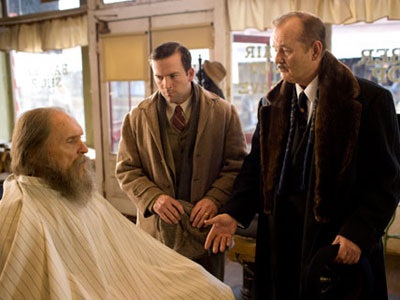Robert Duvall, Confession, and Archbishop Dolan
"Get Low" and Latest Pastoral Letter Focus on Confession

Every once in a while a wonderful serendipity takes place – a congruence of events or experiences that make you sit up and take notice. While some may call such events coincidences, I prefer to think of them as Godincidences. My most recent Godincidence took place this morning.
Last night, my wife and I finally got around to watching Get Low, a film about a hermit named Felix (Robert Duvall) with a dark secret who desires to have a funeral “party” while he’s still alive. Based, in part, on a true story, the movie’s Felix enlists the help of funeral parlor owners (Bill Murray and Lucas Black) to make all the necessary arrangements. Felix wants everyone with a story about him to come to the party to share their story.
This morning, a friend, sent me the text of New York Archbishop Timothy Dolan’s pastoral letter – The Altar and the Confessional.
How, you might ask, could a Hollywood film and an archbishop’s pastoral letter be similar? Well, they both focus on the need for confession and forgiveness.
Without giving too much away, Get Low’s Felix has shut himself off from the world, living in a “prison” of his own making, because of a mistake made 40 years earlier. He has the need for confession, grace, and forgiveness, but cannot forgive himself or bring himself to ask for forgiveness.
Archbishop Dolan writes about our “confessional culture.” When I read Archbishop Dolan’s line, “Our culture does not need to be taught how to confess; it needs to discover where forgiveness can be found,” it reminded me of Duvall’s character.
Felix imagines that his funeral party may be an opportunity for him to confess. Think of it as his “Oprah” moment, if you will.
Archbishop Dolan notes that, first, there must be a recognition, a shock, an acknowledgement of the seriousness of sin. It does exist; and most of us – myself included – do it daily. What’s wrong with the world? “I am,” wrote the great British journalist, author, and Catholic convert G.K. Chesterton.
“Some are inclined to replace exaggerated attitudes of the past with other exaggerations: From seeing sin everywhere they pass to not recognizing it anywhere; from too much emphasis on the fear of eternal punishment they pass to preaching a love of God that excludes any punishment deserved by sin; from severity in trying to correct erroneous consciences they pass to a kind of respect for conscience which excludes the duty of telling the truth,” Archbishop Dolan quotes from Pope John Paul II.
Once we’ve acknowledged our sin, we need to know where forgiveness can be found. Our culture has a deep need for this Sacrament, whether it recognizes it or not.
“Our culture does not need to further expose the stain of its sinfulness; it needs to discover the only One who can wash it away,” writes Archbishop Dolan in his appeal to priests to offer the Sacrament, and to Catholics to avail themselves of it.
The timing of my viewing of the movie and the reading pastoral letter isn’t lost on me. My youngest son is preparing to receive the Sacrament for the first time this weekend. When I open the closet door, with him sitting on one side and myself sitting on the other - something I’ve done with each of my previous four children - and go through a mock teaching version of the Sacrament, I pray that I can keep Christ’s perfect justice and perfect mercy in mind.
What about Get Low’s, Felix? His funeral party is his opportunity to “confess.” Is he be able to? You’ll have to watch the movie to find that out.













